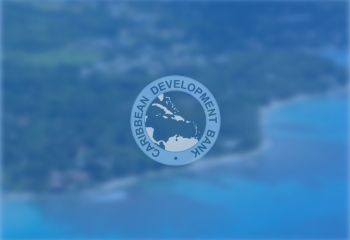CDB finances climate risk and vulnerability assessment for roads in St. Kitts
The Board of Directors of the Caribbean Development Bank (CDB) has approved a grant of EUR538,000 to support the Government of St. Kitts and Nevis in conducting a climate risk and vulnerability assessment of the coastal road infrastructure, as well as prepare designs for the rehabilitation of two high-priority sites.
In St. Kitts, a significant portion of the road network is located along the coast, or in low-lying areas. This makes it particularly vulnerable to the effects of climate change, as well as natural hazards and extreme rainfall.
“Each year, road infrastructure in the Caribbean suffers substantial damage as a result of natural hazards and coastal flooding. The areas targeted for this study in St. Kitts are exposed to upstream flooding, storm surge and sea level rise. In addition to the direct infrastructure repair and rehabilitation costs associated with these natural hazard events, the disruption caused translates into significant social displacement and economic losses,” said Daniel Best, Director of Projects at CDB.
Seventy-four percent of the population of St. Kitts and Nevis reside on the larger island of St. Kitts, where the two roads that have been determined as priority for rehabilitation are located. The first is the northern section of the Old Road Highway, where unstable slopes and the gradual deterioration of the road have been observed. The second is Bay Road/Fortlands Road, where the sea is contributing to the deterioration of the roadway. These roads provide access to critical facilities and services from the capital for residents along the southern coast of the island. The project will provide detailed designs for rehabilitation work at these two sites.
The project will be funded through resources provided under the European Union Contribution Agreement for the Implementation for the African Caribbean Pacific-European Union-Caribbean Development Bank Natural Disaster Risk Management in CARIFORUM countries.
The project is consistent with CDB’s strategic objective of supporting inclusive growth and sustainable development within its Borrowing Member Countries (BMCs), as well as CDB’s corporate priorities of strengthening and modernising social and economic infrastructure and promoting environmental sustainability.


